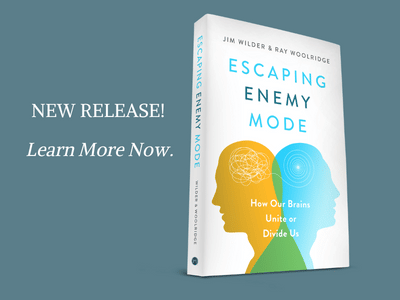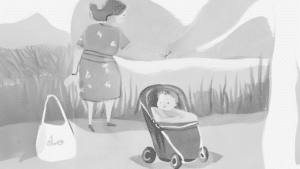Have you ever been around someone who talks endlessly?
I think we’ve all met that one person who never even seems to breathe between sentences, let alone allows you to respond in between streams of thoughts.
Have you ever sat in a classroom or a conference or even a sermon and had the speaker/teacher just go on and on about their topic without noticing that the eyes around the room are glazing over and no one is “getting it”?
Have you ever been in an argument with a loved one and noticed that everything was escalating to a higher state of emotion than the situation warranted? Or maybe you didn’t realize this until much later, after you had both said or done thing you regretted?
At the root of these problems is a sense of being overwhelmed.
But don’t worry, not being overwhelmed, and not overwhelming others is a skill you can learn!
[Tweet “But don’t worry, not being overwhelmed, and not overwhelming others is a skill you can learn!”]
How to Take a Breather
Taking a breather is skill number 9 of the 19 Relational Skills. This skill is one of the many skills our brain needs to learn from our parents when we are young. If we don’t learn it by the time we are three and half years old, then we will do whatever we learned to do instead of recognizing overwhelm.
Sadly, for most of us, that means we will continue to push past the point of overwhelm for our self as well as if someone we are interacting with is overwhelmed.
Take a look at this picture:

Do you think this woman recognizes that this man is overwhelmed? Do you think she realizes that she is overwhelmed too? Is this man dealing with his overwhelm in a manner that will calm this woman down? It looks to me like they are both overwhelmed and dealing ineffectively with each other.
But there is another way! We can learn to recognize the signs of overwhelm, in ourselves and in others.
As with many of the brain skills we learn best in community… so finding someone who has this skill and interacting with them is the quickest way to develop it for ourselves, however, there are some other things we can do even without that. (Check out Connexus if you’re looking for a community that practices these skills!)
1. Know Yourself
We all have our own unique markers for when we are on the way to overwhelm. Our body has a way of sending us warning signals like railroad crossing lights and bells.
For me, my heart races, sometimes to the point that I can hear it in my ears. My hands become clammy and I get super focused on whatever is in front of me. Depending on the trigger I might get a sense that I just want to run away from whatever is overwhelming me, or I might determine that I MUST push on to accomplish this task no matter what.
These are also symptoms that my Relational Circuits (RCs) are fading or not on. Overwhelm causes my RCs to turn off. As I learn to recognize this, I can become proactive about keeping them on using the tools taught in Connexus. (Shalom for my Body, Shalom for my Soul & Heart)
2. Take a Breather (Rest)
Beginning when you first notice that you might be on the verge of overwhelm, take a time out! Here’s some ways to disconnect appropriately:
-
- Breathe deep, and allow the air to fill your lungs, close your eyes and become aware of your need for a rest. Let your breath out slowly. This only takes a few seconds and can be done anywhere!
- AFTER you’ve taken a deep breath – express this need to those around you
- Say you need to use the restroom- maybe that’s why we really call it a rest room!!! This isn’t lying!! ☺
- Say you need some time to think about what they are saying, ask for a “break”.
Be honest but gentle. Tell the person you are with that you are beginning to feel overwhelmed and that makes it hard for you to listen. Ask for permission to disengage temporarily. (this is a good example for them too!) Remember, you can always come back to finish the matter at hand later. Please don’t confuse this “rest” time as an excuse to shut down and stuff feelings away! That is not what this is about. Someone who understands their need to rest, and respects that need knows that they can return to where they left off and deal with it more effectively after resting.
During your breather work on getting your RCs on, connect with Immanuel or just go build some joy! Focusing on what has distressed you right away while you’re overwhelmed isn’t really the best option. That’s not rest! ☺
3. Time limits
Rest required can be anywhere from a few seconds to hours depending on the situation. If you get rest before hitting overwhelm, chances are you won’t need as much.
Consider what could happen to the infant who looks away signaling the beginnings of overwhelm. If the mother has Skill 9, she will also break eye contact and allow that rest to occur naturally. (see tip #4 below!) Overwhelm will not be reached because the brain has gotten what it needs. However, without Skill 9, she might try to force the baby to continue interacting, at that point the baby will enter into a state of overwhelm. Another unhealthy response from a mother without Skill 9 would be that she might not return to engage with the baby again for a long time. At this point, the baby will be looking and searching unsuccessfully for a joyful experience.
A mother with Skill 9 will look away, pause and match the baby’s intensity and rest level, and then be available when the baby looks back again for another round of joy building.
4. Pay attention to eye contact
Are you avoiding eye contact? Is eye contact becoming uncomfortable for you? Or…. Are you noticing that the person you are talking to is starting to look away more frequently? Eye contact is one of the first signals that tell us one or both of us need a break. From infancy, as soon as a baby can see, he/she will look away when they need to rest.
In order to utilize this amazing warning signal, we need to start actually using eye contact to begin with. If you find yourself talking to people and realize that you haven’t looked into their eyes in a while, you might be missing out on their signals and cues that they are overwhelmed.
The eye not only communicates joy (glad to be with you) in less than a second… it also communicates non-verbally when someone is overwhelmed and no longer feeling joy. In our culture today, we’ve started putting less and less importance on eye contact in our relationships. In order to restore this diminishing skill, we need to start making eye contact on a regular basis.
5. Watching out for others
Once you begin to recognize overwhelm in yourself, you can then begin to recognize when those around you are going there. Then you can give them what their brain needs without them even knowing it!
- You can offer rest.
- You can maintain your own RCs in the situation and prevent the “double flare” that happens when 2 overwhelmed people try to interact.
You’ll be surprised by how well it works to give an overwhelmed brain time to rest. You might also be surprised to realize that you really are glad to be with them, it was the overwhelmed state that you had an aversion to.
Learn this relationship skill and more
Click to share this post on Facebook or Twitter.
Photo Credit Andrés Nieto Porras and Time’s a Tickin’.












